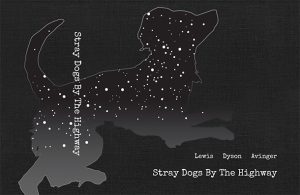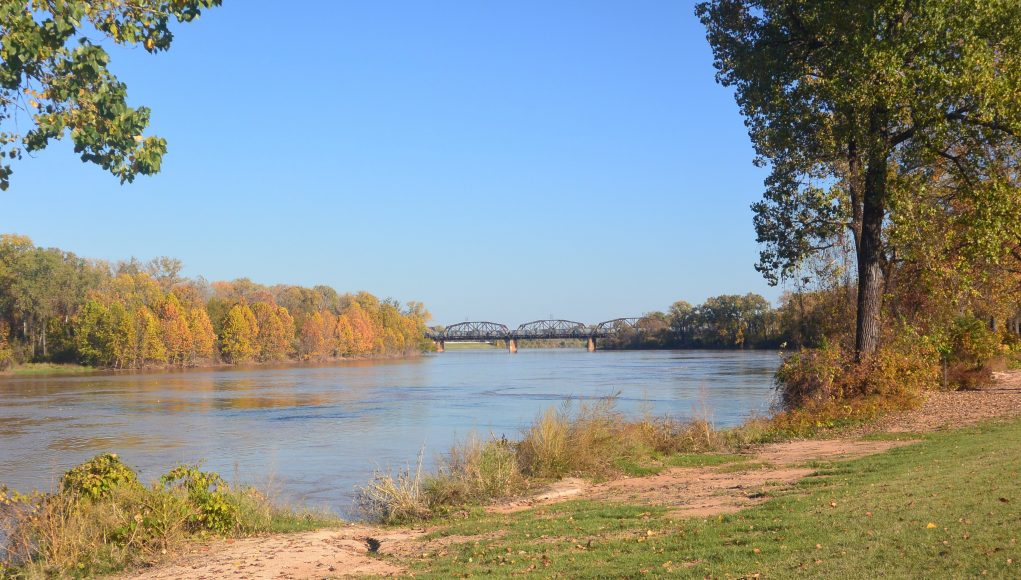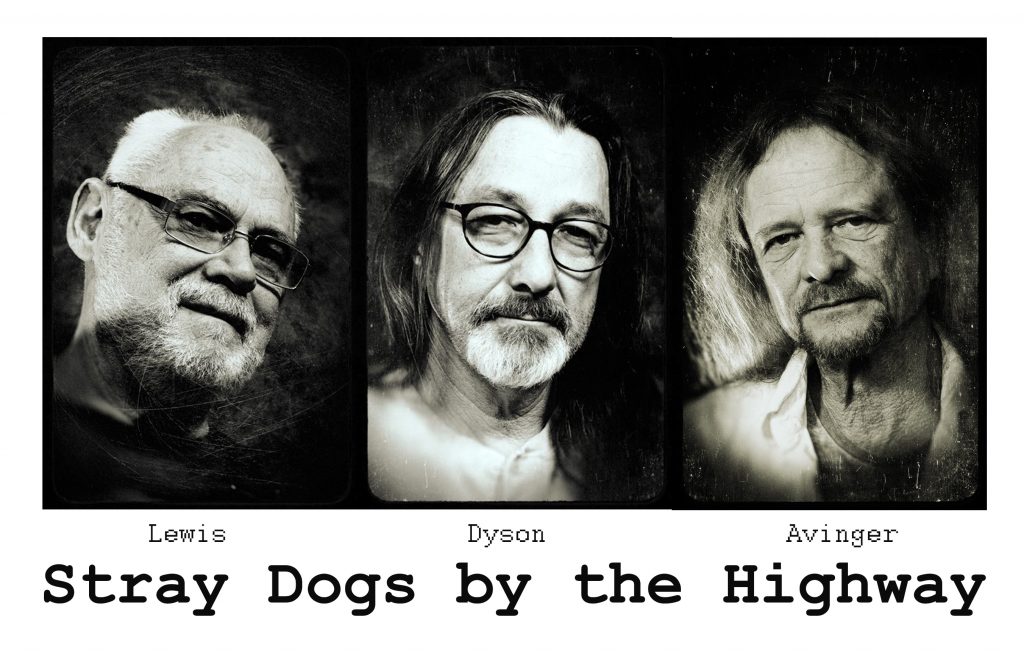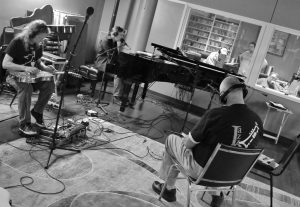Blues. They spring from the dregs of life. Here in Shreveport, the dregs of the Red River have left our city with a rich musical heritage a la Lead Belly and Elvis. Today, those same waters continue to bring a creative culture to Northwest Louisiana.
Alan Dyson, local advocate for fine art, design, and music, is a voice for the local arts scene in many ways. He created Stray Dogs with the help of two talented friends, one related by blood and the other by a love of songwriting. The lyrics come from the autobiographical poetry of David Love Lewis, and the musical savvy comes from of lifelong producer Erich Avinger, Dyson’s cousin. Alan has not only lent his own voice, but he has created a platform through Shreveport House Concerts to elevate his fellow artists into the collective conscience.
 Stray Dogs by the Highway primarily elevates the poetical voice of David Love Lewis. To create the album, Dyson pulled topics, themes, and verses from Lewis’ catalog that resonated with him and would resonate with the audience. And he did a masterful job in his selection. The most formative song on the album for Dyson was the most insightful for me as well. This track, Moonlight Revisited, tells of finding the ‘right road at the right time’ in the midst of uncertainty, breakup, and pain. Dyson also plucked the lyrics for track 7, Broken Glass, out of the common experience of finding a new path separate from whom he was raised.
Stray Dogs by the Highway primarily elevates the poetical voice of David Love Lewis. To create the album, Dyson pulled topics, themes, and verses from Lewis’ catalog that resonated with him and would resonate with the audience. And he did a masterful job in his selection. The most formative song on the album for Dyson was the most insightful for me as well. This track, Moonlight Revisited, tells of finding the ‘right road at the right time’ in the midst of uncertainty, breakup, and pain. Dyson also plucked the lyrics for track 7, Broken Glass, out of the common experience of finding a new path separate from whom he was raised.
For Dyson, the true lure of Stray Dogs is the lore of Lewis. His appreciation for the poet’s combination of story and mystery surfaced many times throughout the interview. Apart from references to the common human experience, the album often tells stories from Lewis’ life that have no precedent. The title track tells of Lewis’ relationship with George Burton III, a fellow poet. Every Broken Form, my favorite track on the album, tells of Lewis’ experience living on the streets while working in downtown Shreveport. Lewis is spared from being robbed at gunpoint when he says to his would-be attacker, “You’re homeless just like me.” Another vivid moment for Lewis was the beginning of the Vietnam war, which is the subject of the track that ends the album with a sudden turn from love and bliss to sadness and uncertainty.
If you come to this album for the poetry in the lyrics, you should stay for the variety and skill in the music, which caught my ear the most on the album. Dyson’s piano provides the sonic bread and butter of the album, which is seamlessly blended with his songwriting skills. For the other parts of his compositions, Dyson relied on a wealth of musical talent. Avinger, a lifelong musician, provides a variety of instrumentation, including dobro and drums. Yet he truly showcases his versatility on the guitar, even throwing in some smooth jazz on Speak No Evil. This same song also showcases Chris Maresh, bassist of legendary guitarist Eric Johnson.
The musical attention to detail shines through when the music rises to the occasion of the lyrics. The music accompanying Lewis’ homeless encounter features a driving beat, saloon style piano, and the wah pedal aid. The title track uses dobro and saxophone to smooth the rough mythology of the two fellow stray dogs. On the aforementioned Speak No Evil, the track of guest lyricist Donna Waylene Moore, jazz guitar, organ, and upright bass adorn give the track the feel of a fable.
Listeners familiar with Dyson and Lewis’ generation will catch many references to those eras and Shreveport that will make millennials like myself tire of Google. The album is filled with references to Bob Dylan, New Orleans drug stores, Shreveport establishments, French phrases, and the atrocities of war. The final reference surfaces on the final track; it is here that Lewis’ shows he is from the era of the Vietnam war and the flower children of the Bob Dylan era.
Dyson’s respect and passion for the arts community is introduced in the album cover, which credits the whole trio for this work of art. In these days where the vocalist reigns supreme, Alan is passionate about elevating his fellow artists. He takes part of the album to pay homage to Donna Waylene Moore, who also provided artwork to the liner notes.
Dyson’s plea to elevate his fellow artists into the collective conscience, which he believes is the primary goal of an arts council, led him to start his own venue, Shreveport House Concerts. He has already hosted Brian Blade and plans to play Stray Dogs later in April. While supporting other full-time artists, Dyson also works as an architect. According to him, doing music part time has allowed him to do music for pure enjoyment.
It’s this enjoyment and love of the arts that motivates him. As he said when he first met David Love Lewis, “We couldn’t not do it.”
You can check out more about Dyson and Company through iTunes, YouTube, or Alan’s website.
You can also hear Alan play at his venue on April 17.



